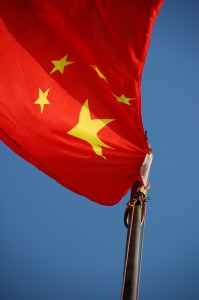Not All Seem to be Happy about China’s Economic Prosperity
China’s Economic Growth: How the Different Countries View It
Written by Oxana Tsirelman, Online Editor
It’s no secret that China is currently undergoing rapid economic changes due to its sustained and robust growth. However, what is controversial is the impact its growth has on the world economy.
China’s economic growth is embraced by several countries in Africa, a reaction that’s a polar opposite of many developed countries.
In fact, when asked about their views of China’s economic growth, approximately four in five Nigerians and Kenyans cited that “they looked forward to such an outcome”, according to the survey of more than 28,000 people in 27 countries commissioned by the BBC World Service.
“All African countries view China’s increasing economic power positively,” said the survey report.
A poll also indicated that, on a global scale, half of the world favours the possibility of a wealthier China and a third cited this change as unwelcome. The majority of North Americans are very wary about China becoming an economic super power, especially now more than ever.
Japan, South Korea and Russia are among the countries that did welcome China’s robust grow.
According to Economics correspondent Andrew Walker, “Compared to BBC World Service polling in 2005, negative views of China’s growing economic power rose – and are now in the majority – in the US, France, Canada, Germany and Italy”.
[pullquote]Many critics cite the unfair competitive advantage this provides to China.[/pullquote]“Across the developing nations polled, positive views of China were more numerous than negative ones – with the exception of just one country, Mexico” he said.
What exactly drives these feelings about China’s economic growth is currently undergoing debate. Although the survey doesn’t give us a clear indication, there are some speculations in response to this emerging trend.
“In the period since the earlier poll of 2005, the world has been through an episode called the great recession, a result of the financial crisis, asserted Andrew Walker. “The developed world was hard hit. The rebound now underway in the global economy is led by developing countries, notably China.”
“There’s no question that China’s rise, coinciding with a sense of stagnation and paralysis among many of the leading western democracies, is psychologically unsettling” said Tom Friedman, a recognized New York Times columnist and Pullitzer Prize winner, to BBC. China is still in many ways a freeloader on the international system. It’s not a stakeholder.”
What attracted global attention most of all is China’s approach to its currency. China is keeping its value on the down low by participating in the foreign exchange market. Many critics cite the unfair competitive advantage this provides to China.
In fact, when people were asked whether China trades fairly with other countries, well over 50% in Japan, South Korea, Germany and Italy deem China as trading unfairly. While the USA indicated at 45% that China was trading unfairly.
What’s important to remember about China’s robust growth is that “more than a billion consumers are going to buy more goods and services as their living standards rise and it’s quite clear that Chinese firms will not be able to supply everything.”
ARB Team
Arbitrage Magazine
Business News with BITE.
Liked this post? Why not buy the ARB team a beer? Just click an ad or donate below (thank you!)
Liked this article? Hated it? Comment below and share your opinions with other ARB readers!

























Share the post "Not All Seem to be Happy about China’s Economic Prosperity"